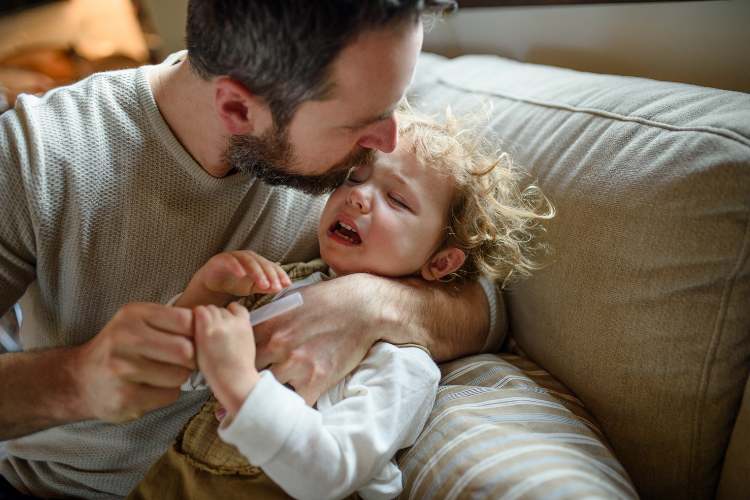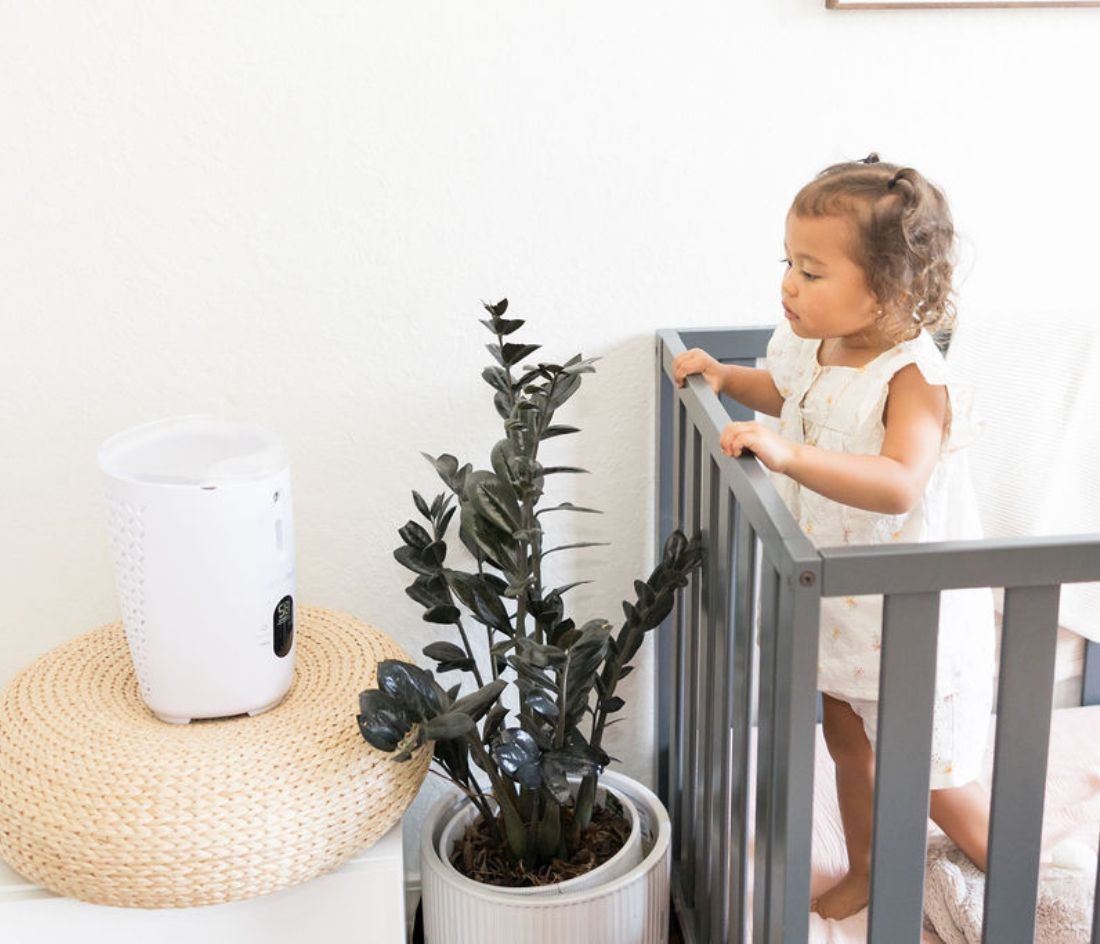Guest Post by Katy Fleming, MA, LPC, BSN, RN
When you’re balancing parenthood and a career, you don’t have time for sick days. It throws a wrench into the week when our kids wake up coughing and sneezing with a dripping nose.
Can I send my sick child to daycare?
When your child continually has a runny nose or other symptoms, how do you determine when to keep them home?
We’ll review 5 important factors to consider before sending your sick kiddo to daycare.

5 Things to Consider Before Sending an Under-The-Weather Child to Daycare
On average, children suffer from the common cold 6-8 times a year. Those in daycare often report even higher numbers of illnesses. It’s not a surprise to parents, our kids are frequently under-the-weather.
Especially with the rise of the highly infectious COVID-19, it’s important to make calculated decisions.
Here are 5 aspects to consider when determining if your child should still attend daycare when they aren’t feeling well.
Are they contagious?
Some conditions, such as the coronavirus or the flu, are very contagious. The common cold and other respiratory infections frequently spread among children.
However, seasonal allergies and eczema are examples of conditions that your little ones won’t pass on to their friends. These types of conditions shouldn’t prevent daycare attendance.

Do they have a fever?
If your child’s body temperature is 100.4°F or higher, it’s considered a fever.
Viral infections often cause fevers, however, there are many reasons for high body temperatures in children. For example, high fevers in girls may result from a bacterial urinary tract infection.
Fevers are a sign that your kiddo’s body is fighting an infection or illness. They need rest and may need treatment.
For children 3 months or younger, call the pediatrician immediately for any temperature of 100.4°F or higher. Anyone older than 3 months, call the pediatrician for a temperature of 102°F or higher.
Are their symptoms manageable?
Another aspect to evaluate is whether your under-the-weather kiddo’s symptoms are manageable.
Every daycare has a certain staff-child ratio to maintain. For example, let’s say your son or daughter has diarrhea with bowel movements more than 2 times their normal frequency per day.
Staff members can’t address your child’s needs and simultaneously maintain their ratio. It’s a safety risk to all children in the program.
Can they engage in daily activities?
Assess for behavioral changes in your child as this is often one of the first signs of illness.
Whether an infant or school-aged child, you’re the expert on your kiddo’s baseline behavior. Changes in sleep, appetite, or general mood may correlate with infection or a condition.
If your child doesn’t want to engage in normal daily activities, look for other signs of illness and consider letting them rest at home.

What are your daycare’s guidelines?
Finally, review your daycare’s policies and procedures. Every facility is different, but many daycare require that your child is fever-free for at least 24 hours.
Germs spread quickly through childcare settings, so these policies are a vital aspect of protecting both staff and children.
Before sending your son or daughter to daycare, assess these 5 factors to ensure safety. When needed, allow your child to rest and recover. Call the pediatrician with any questions or concerns.
Looking for more information? You'll enjoy these:
- How to MaintainYour Newborn's Schedule When Traveling For Spring Break
- Causes of Baby Congestion (And When to Visit The Doctor)
- Do You Need to Change Your Filters Every Time You Use the NozeBot?
- Common Mistakes Parents Make When TheirInfant or Child is Sick
- Our Favorite Family Sick Day Movies
As a licensed counselor and registered nurse, Katy approaches freelance writing with years of experience and a unique perspective. Alongside her partner, Katy loves to travel the world and embrace other cultures from volcanoes in Iceland to villages in India.
The Nozebot is a battery-powered suction device designed to clear nasal congestion in babies and children.



